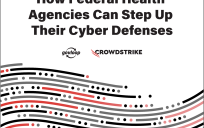Stewardship is a term implying the responsible use of important resources. The concept of stewardship can be applied to a variety of domains and has long been part of human dialog on what is right and wrong. A great dialog on stewardship in cyberspace is now underway, and it just took a huge leap forward with the publishing of a new paper by Melissa Hathaway and John Savage titled “Stewardship of Cyberspace: Duties for Internet Service Providers.”
Their paper, published by the Canada Centre for Global Security Studies at the Munk School of Global Affairs at the University of Toronto is succinct and very well written. I recommend you read it all yourself. However, till you can download it, I provide a short gist below:
From their Abstract:
In today’s interconnected world, the Internet is no longer a tool. Rather, it is a service that helps
generate income and employment, provides access to business and information, enables e-learning,
and facilitates government activities. It is an essential service that has been integrated into every
part of our society. Our experience begins when an Internet Service Provider (ISP) uses fixed telephony (plain old telephone service), mobile-cellular telephony, or fixed fiber-optic or broadband
service to connect us to the global network.From that moment on, the ISP shoulders the responsibility for the instantaneous, reliable, and secure movement of our data over the Internet.
The article goes on to examine the gaps between what ISPs’ do and what they are expected to do. They define and discuss eight key ISP duties.
The Eight Key ISP Duties:
1. Duty to provide a reliable and accessible conduit for traffic and services
2. Duty to provide authentic and authoritative routing information
3. Duty to provide authentic and authoritative naming information
4. Duty to report anonymized security incident statistics to the public
5. Duty to educate customers about threats
6. Duty to inform customers of apparent infections in their infrastructure
7. Duty to warn other ISPs of imminent danger and help in emergencies
8. Duty to avoid aiding and abetting criminal activity
Why are these duties so important for today’s ISP? The fact is that the vast majority of Internet traffic goes over these ISPs. Hathaway and Savage cite clear statistics indicating that the top 25 ISPs’ care as much as 80% of all the Internet’s traffic. As they do, they meet expectations of those that have them on contract and they also meet the requirements of the law. But what other stewardship principles should we hold them to? The way Hathaway and Savage build their analytical foundation is compelling and a review of this paper will make you much more informed on this important topic.
My recommendation: Download and read the full paper. I think you will find their logic compelling and their recommendations important to implement. The paper is available at: http://www.cyberdialogue.citizenlab.org/wp-content/uploads/2012/2012papers/CyberDialogue2012_hathaway-savage.pdf





Leave a Reply
You must be logged in to post a comment.